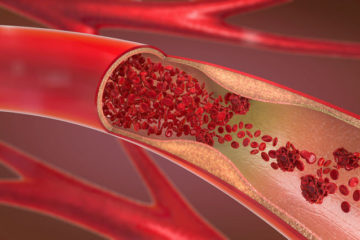Probiotics are the Vitamin C of the 21st century. The word is getting out how widespread are the things they can do – and now the food companies have come on board. A growing number of probiotic foods are filling the grocery shelves – special ‘probiotic’ yoghurts and miso (which were always probiotic before it became fashionable), kombucha in several flavours, even dry dog food now has added probiotics! (And yes, I do give my dogs probiotics when they get sick – they do well on the same strains that humans do!) With all this new awareness of gut bacteria come probiotics questions. I’m looking at some of the main ones here.
FIRST: Don’t take Probiotics if…
Probiotics are not the be-all and end-all for good health. In fact, if you have ‘leaky gut’ (intestinal permeability), you may need to make a start on getting those ‘tight junctions’ in your intestines healed up before you start on probiotics or the bacteria can ‘slip through’ into the bloodstream and potentially cause an immune reaction. Or if you have acute pancreatitis – you should not take probiotics at all – it will cause a real flare-up and worsen the situation. See a nutritionist if unsure or to fix your gut first.
Now onto the FAQs.
What’s the best time of day to take probiotics?
Since probiotics are live bacteria, we have to remember that they have to make their journey through the highly acidic environment of the stomach – alive – in order to reach the large intestine to do their work.

When we begin to eat, stomach acid increases. Therefore taking a probiotic away from eating food is best. Options that work are:
- In the morning, 15 – 30 minutes before food
- right before bedtime, or
- 20 minutes after eating
That said, several probiotic formulations are still effective if taken with food – their bacteria have been proven to survive these conditions and reach the target spot. If in doubt though, follow these guidelines.
Onto the next of the common probiotics questions:
How old do children have to be before taking probiotics?
Firstly, children and young babies can benefit greatly from a probiotic supplement. Babies are born with a seeding of gut bacteria from their mother. But if they are born via Caesarian, their gut bacteria will be the type of bacteria on the skin of those in the delivery suite. Of course, this will impact their health. We want to get the right bacteria into their gut for optimum health.
Conditions probiotics can help noticeably in infants are –
- constipation
- colic (they can reduce crying)
- reflux
and in children
- secondary infections
- diarrhoea, and
- often eczema and allergies

Breastfed babies get up to 700 types of probiotics in their mother’s milk – if their mother has a healthy gut. A breastfeeding baby of a healthy mother is not likely to need probiotics. If you think probiotics could help your child though, it is important to select probiotic strains common to the digestive tracts of babies and children. Ask a nutritionist, or else purchase one designed specifically for children.
Do seniors need different probiotic strains?
Seniors are more likely to need and benefit from probiotics than anyone else. Over a lifetime, many more bad strains of bacteria build up, leading to ill health. Conditions in the elderly which probiotics target are:
- undernutrition
- constipation
- declining immune function
- malignancy (a lot of research is going into this right now)

It may not be necessary to use a supplement. Try eating probiotic yoghurt (the plainer the better) or fermented foods like sauerkraut. A supplement merely gives a guaranteed dosage that the functional foods cannot specify.
I eat yoghurt; aren’t I getting enough probiotics?
Another of the probiotics questions I get asked.
Different yoghurts have different NUMBERS of bacteria. These are rarely measured and differ between batches. Therapeutic dosages are needed when treating different conditions. So on one hand, yoghurt may be sufficient in bacteria numbers to help your condition. But on the other hand, it may not. We just don’t know. Probiotic supplements, however, are checked, batch-by-batch, for bacterial colony numbers, in order to be legally sold in Australia.

Second, different yoghurts contain different STRAINS of bacteria. Some strains are not much use for some conditions. So you may be getting lots of bacteria for the wrong condition. This is not usually harmful as food, but may not help you the way you need.
The key to healthy gut bacteria is – are you eating enough fibre to feed your own native bacterial colonies?
Read my post <here> to find out how much fibre you are getting and how much fibre you need to keep your own microbiome happy and functioning well.
Can I take them while I’m on antibiotics?
This is one of the most common of probiotics questions. Since probiotics are live bacteria, and antibiotics are designed to kill live bacteria – it seems counterproductive to take them while trying to kill them.
Here’s the thing though: these bacteria are virile and they reproduce fast once they get inside you. So if you take them 2 hours after you took your antibiotic, after it’s hopefully cleared out of the system, the new good bacteria can actually get busy making a nice new environment for a healthy gut. Of course, the next time you take the antibiotic (an hour or two later), you’ll kill a lot of them, but some will hang on. If antibiotics killed 100% of gut bacteria, we’d all be stone dead after one dose. You can’t hurt your gut bacteria that much and survive to tell the tale.
There is a type of ‘probiotic’ though that is actually a yeast – you may have heard of ‘SB’ the popular name for Saccharomyces boullardii. Or Saccharomyces cerevisiae. Same thing. This yeast also makes a nice environment in the small and large intestines for your own gut bacteria to spring back and colonise happily in. And as a yeast, antibiotics won’t hurt it.

So if you are using antibiotics, and hopefully you aren’t too much because it can take a year for the gut to recover from the degree of trauma that one dose of antibiotics causes – try these tricks – and when it’s finished, get a good quality probiotic, preferably one containing some sort of Lactobacillus and Bifidobacterium, (read the label to see what’s in it – don’t be afraid of the big words – just look to see that each of these words is somewhere in the ingredient list).
And check you’re paying around about $1/day per dose, eg. 60 tablets should cost around $45 – $60 (or else you’re probably getting something with tiny bacterial colonies that won’t make it through the stomach to the target).
Then get it into you for a good six weeks, every day. By this time your gut lining will have replaced itself fully twice.
And eat plenty of high fibre foods (not fibre supplements) <read about them here> This will give your own gut bacteria the best hope of springing back to healthy-sized colonies again.
Can probiotics help with anxiety or depression?
Yes, they certainly can. Watch this <short video> to find out more. This is one of the most exciting things in the health space today.
Free list of best probiotics
I have a list of some of the common conditions probiotics can be helpful for (diarrhoea, constipation, weight loss, low immunity), and exactly what strains research says have been proven to help. Probiotics questions usually include, “How do I know which one to buy?” Download your list from the pop-up form so you know exactly which probiotics you are looking for at the chemist or health food shop. It’s free! (If you already deleted the form, refresh the page scroll down 30% of it – it should pop up again.)




0 Comments